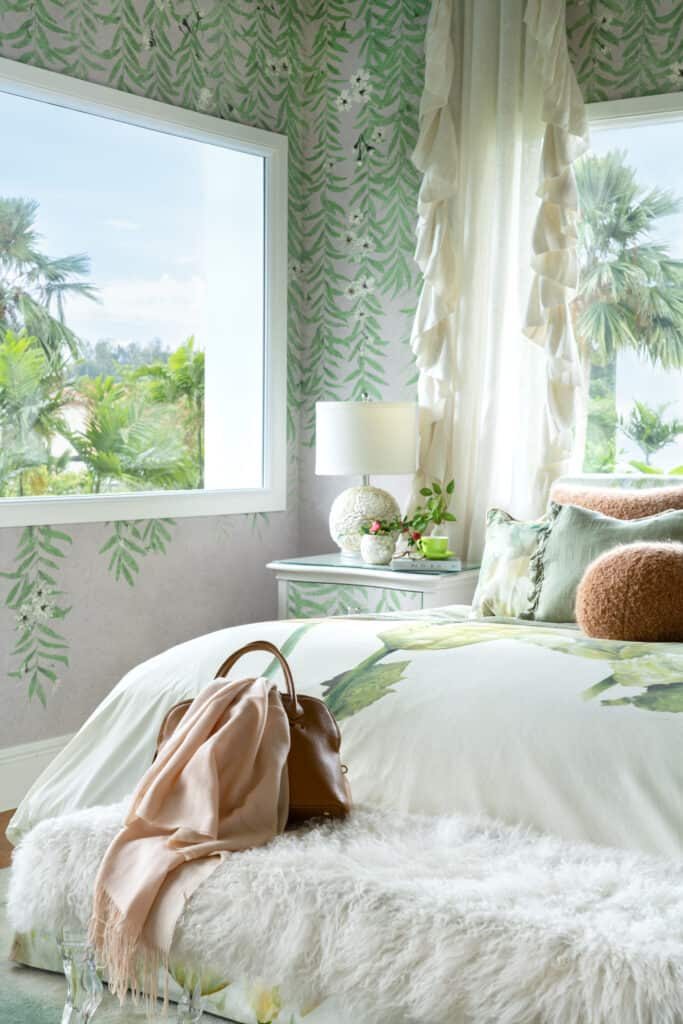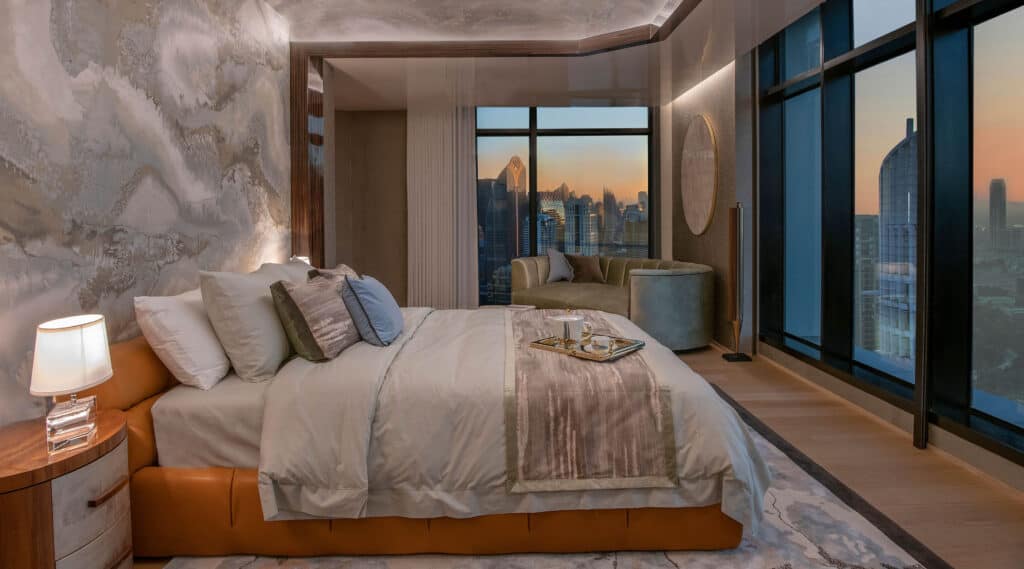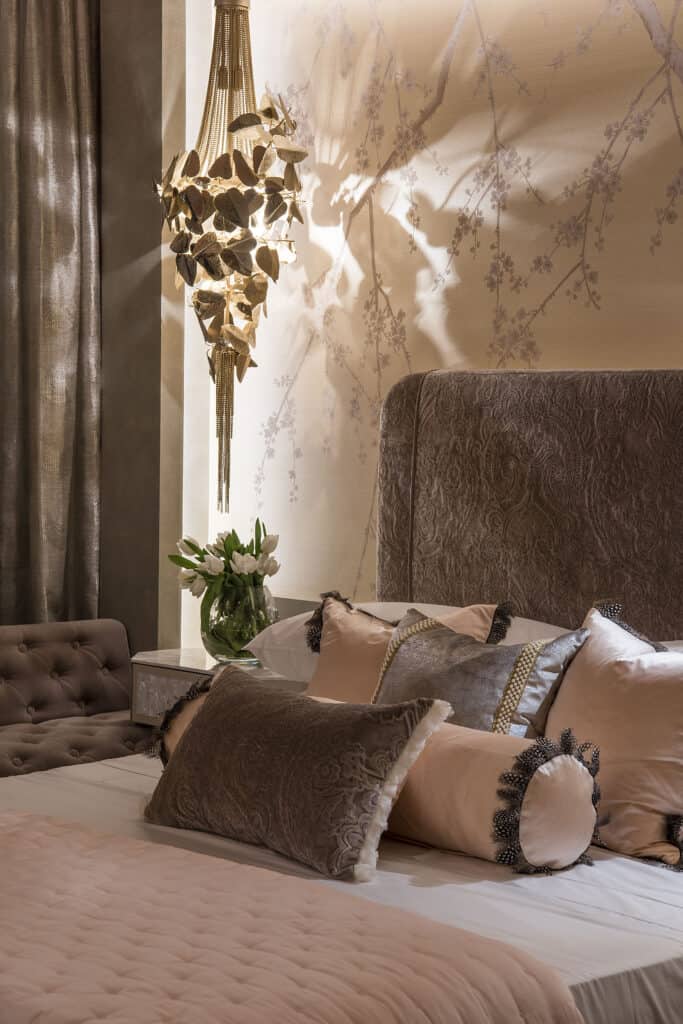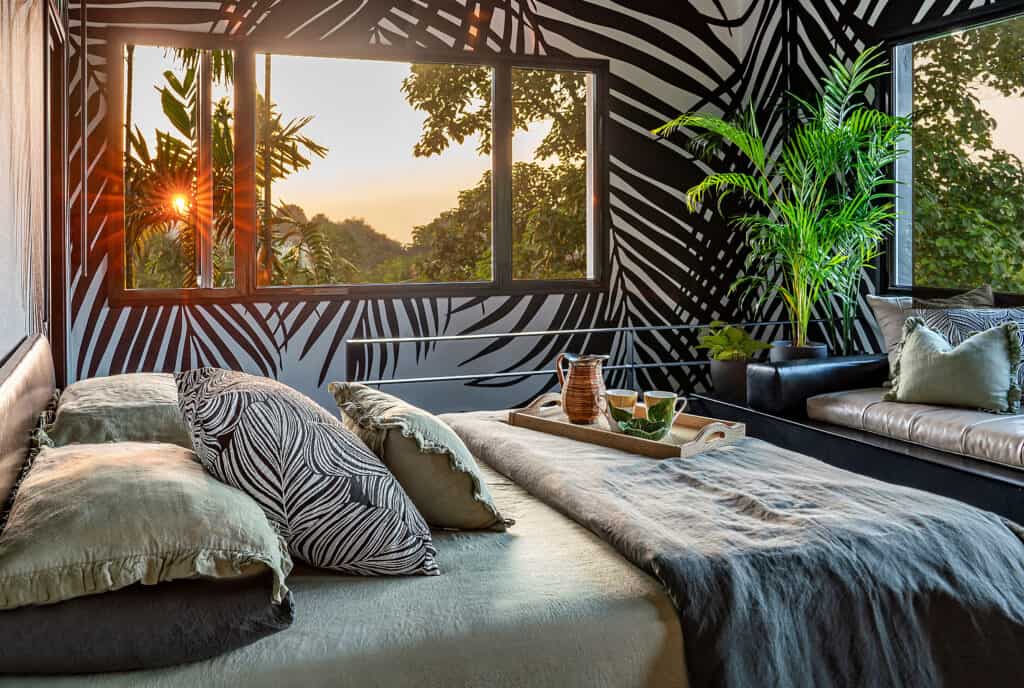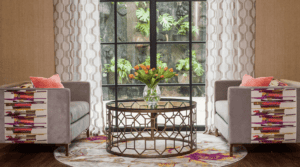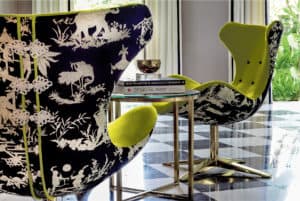“Everything will be better in the morning.” – how many times did our mother’s tell us this?
And you know what? She was right. A good night’s reset has a very real and measurable impact on our wellbeing.
Sleep regenerates us, bolstering our immune system, resets hormones to lift our mood.
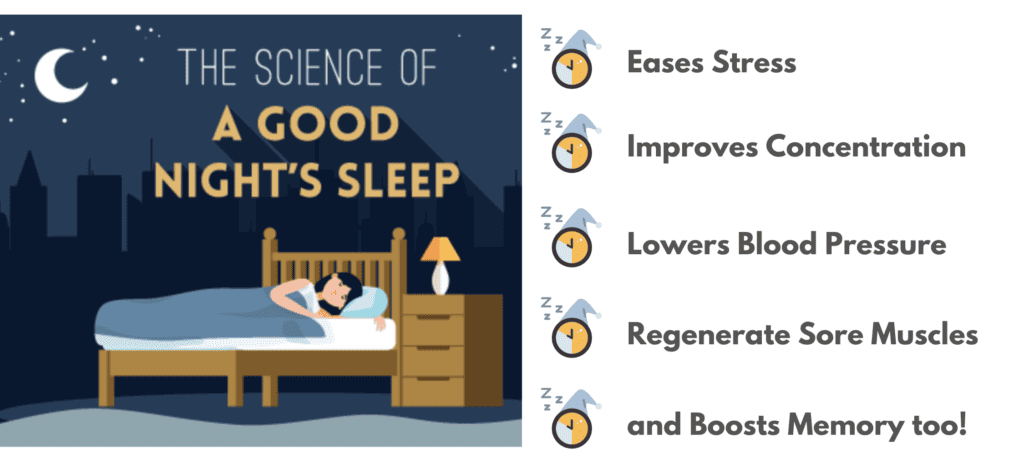
All that sounds pretty important right?
So crafting an environment that fosters good sleep, is a crucial starting point for a happier healthier life.
So where do we start?
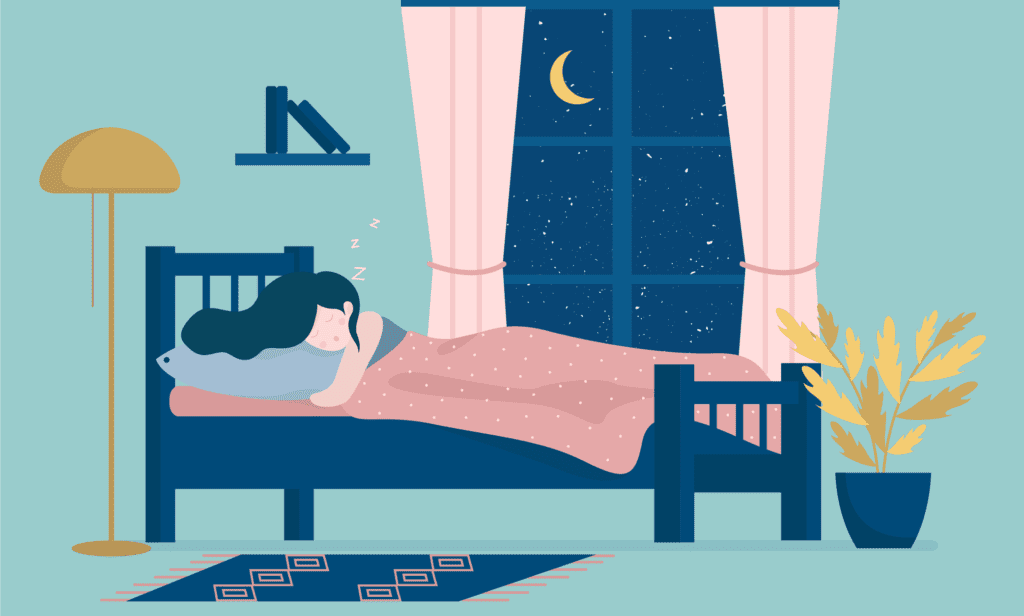
Make it Yours
There’s no greater deterrent to good sleep than a bedroom that you hate spending time in. So create a place that YOU enjoy.
There is no right or wrong. Identifying a look that makes you look to achieve that atmosphere that works best for you.
While the right ambience and style will vary from person to person, there are also some crucial elements that will help us ALL get a better night’s sleep.
We spend a third of our lives in bed so the right bedding is an important choice, It is a personal thing!
Find the Right Spot
The placement of your bed can have a huge impact on the quality of your sleep.
Consider where the sources of natural light are in your bedroom and where your bed is in relation to things like doors and walkways. Bedroom Feng Shui principles suggest that you avoid placing your bed directly in line with the door and, if possible, try and place your headboard against a solid wall.
Ultimately what matters most is that you find the layout that is most comfortable for you.
Air Circulation, Quality and Temperature
Your bedroom should be cool rather than too warm – lower temperatures tell your body it’s time to sleep. Ceiling fans are great for circulating air. The fan will also create low level white noise which is conducive to sleep and it’s much better for you than air conditioning.
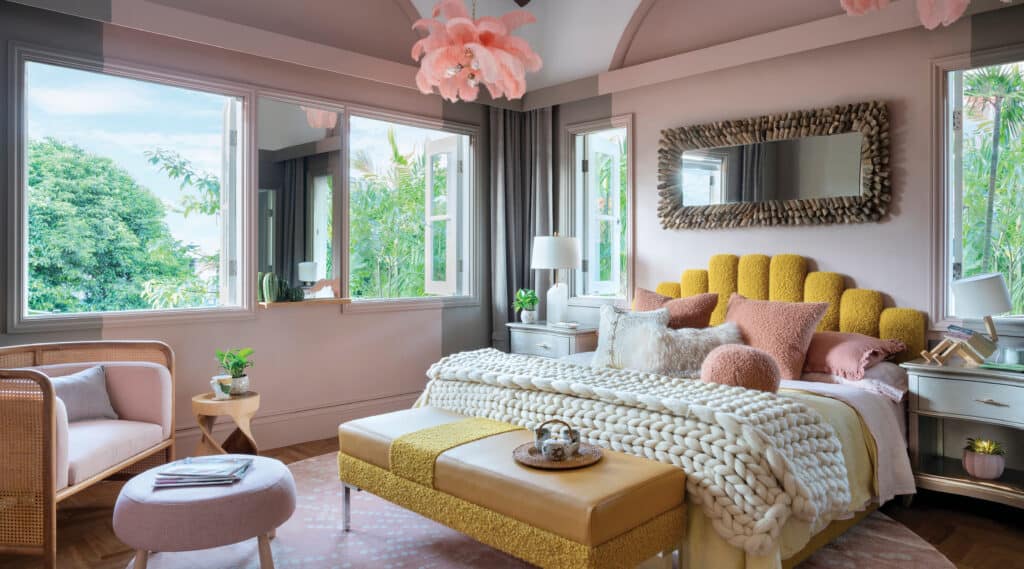
Plants are an effective way to improve the quality of air in your bedroom, or you could consider an air filter or air purifier.
Limit Light
We all know that darkness is an important factor in getting to sleep and staying asleep. This includes eliminating clocks with lit displays and LEDs on electronics. Make sure you have good curtains and blinds to block out any outside light, and have dimmer switches on the bedroom lights. Your bedroom should be dark at night, but equally important is that it’s light and bright during the day.
For more on lighting check out one of our recent blog posts: Click Here
Declutter
A lot of us find it hard to switch off at night and go to sleep. Having clutter in your bedroom is not going to help! There’s nothing like a big pile of dirty laundry staring you in the face to make going to bed less relaxing. Or worse, a pile of bills to pay. Well considered storage, will ensure that your room can easily be kept tidy and reduce distracting visual stimuli.
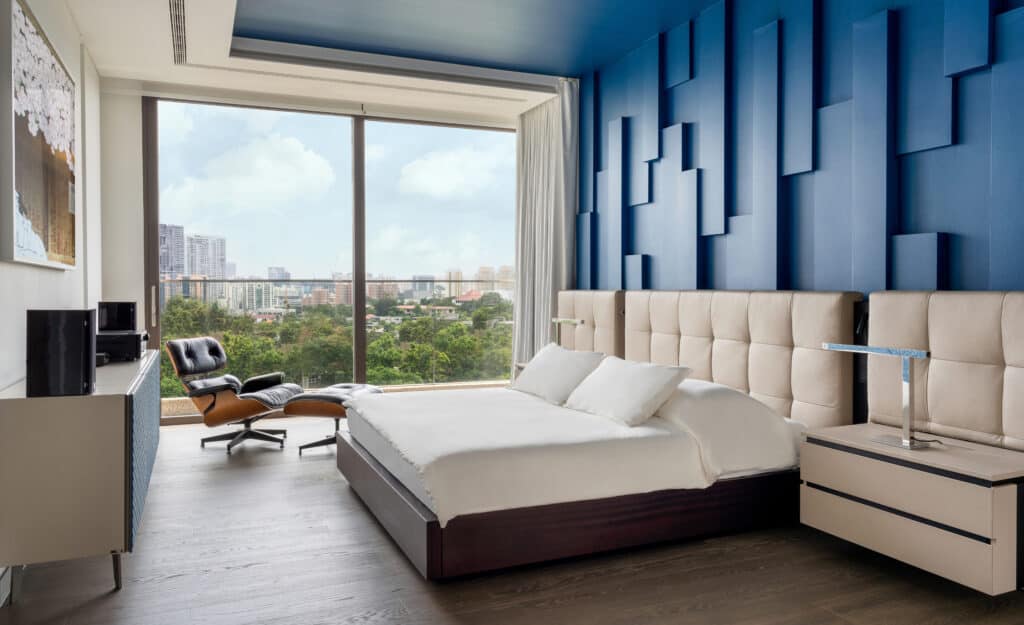
Designate Areas for Different Activities
For many of us, our pre-bedtime routine might involve as many things as lying in bed, watching TV, and working on our laptops all at once. This jumble of activities can confuse our brains and make it hard to focus on getting a good night’s sleep. Designating an area just for sleeping, can help us nod off much more easily.
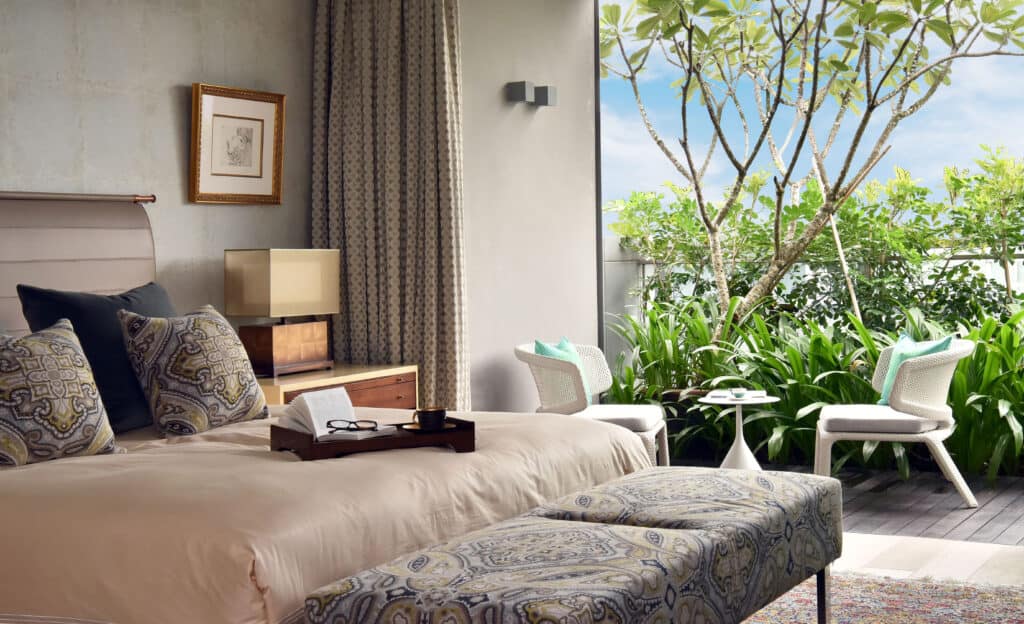
Soothing Colours
Cool neutrals and soft pastels are a good choice for the bedroom because they’re relaxing colours. Designing your bedroom for a better night’s sleep is all about calming your nervous system. It goes without saying that the bedroom isn’t the best room to paint bright red or use clashing colours. Think in terms of tone on tone. Some of us do enjoy revitalizing colours, and these can be incorporated but sparingly as accents so that they energize us rather than stress us.
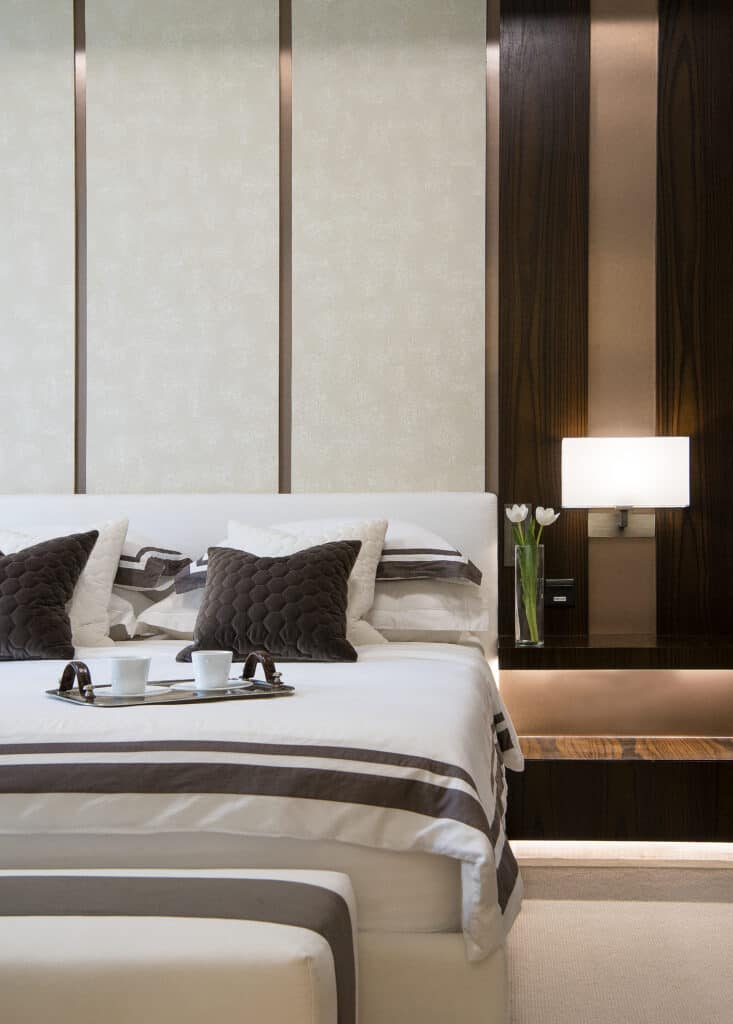
For more on softer tones go to our Pastel Persuasion blog post: Click Here
Calm the Senses
Don’t neglect any of your senses when you’re working towards a better night’s sleep. Soft furnishings and floor coverings can help absorb noise and as mentioned previously a fan on low speed will not only cool your body but it will also produce low level white noise which aids sleep.
Lavender is known for being soothing and promoting relaxation. A drop of lavender essential oil on the light bulb of a lamp or on your pillow will help you relax.
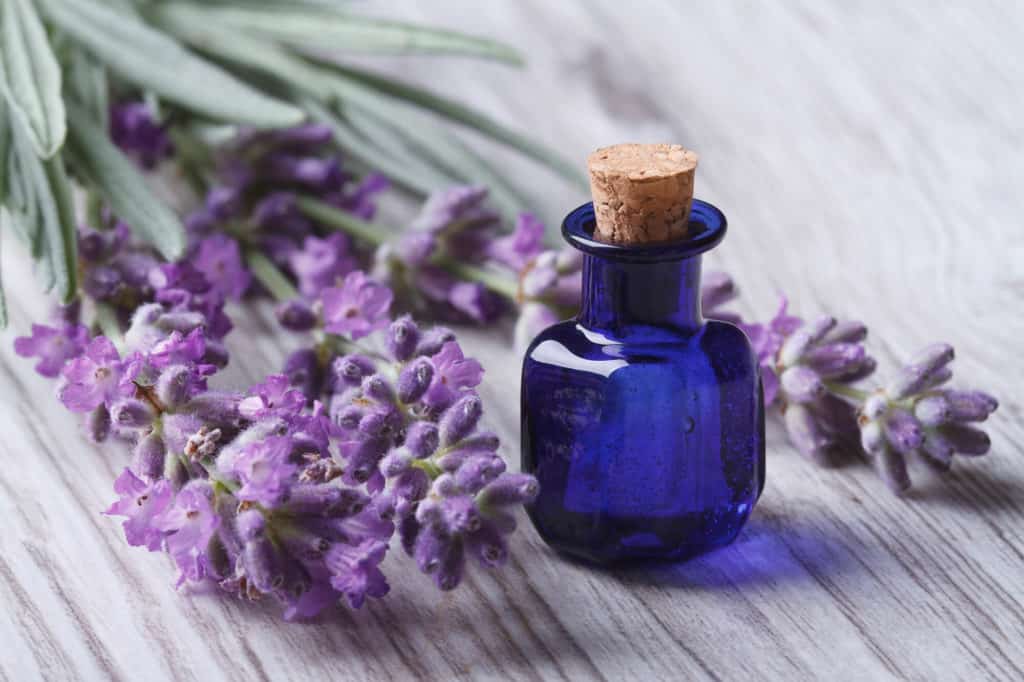
Importantly for deep relaxation your skin and body should be surrounded by softness and support.
Bedding plays a big role in sleep. Natural fibres, like cotton, linen and bamboo are breathable and will keep us far cooler and more comfortable in hot, humid conditions.
Making the bed every single day can actually help us sleep better at night. A neatly bed at bedtime can promote a pleasant feeling of comfort and relaxation.
If it feels good, it must be right!
Good Design, is all about what feels great to you – and in this most private of spaces, self-indulgence is the name of the game.
A retreat that, welcomes you with a warm embrace, that caresses you gently until the stresses of the day dissipate and one that ensures a restorative night’s rest, is the most profitable investment in yourself that you can make.

